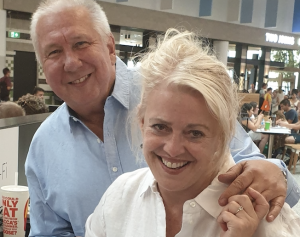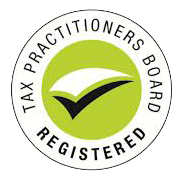How to stop gambling

Robert Rushford, Partner Release My Super
Release My Super specialises in the release of superannuation for gambling, drug, and alcohol rehab, mental health treatment, and IVF under the Compassionate Release of Super Program.
If you need help to pay for treatment review our website.
Specialist Melbourne rehab services which target problem gambling are available, like My Hab Melbourne rehab, who take clients from around Australia.
We are pleased to refer our clients to clinics like My Hab who believe in providing effective mental health programs with great depth.
Gambling addiction is a preventable disorder.
If you or someone you know has a gambling problem, it is important to get help as soon as possible. Gambling addiction can lead to financial ruin, relationship problems, and mental health issues. There are many resources available to help people with gambling problems, and treatment can be very effective.
And gambling addiction is a preventable problem.
By understanding the risks of gambling and taking steps to avoid excessive gambling, you can keep yourself and your loved ones safe from the harmful effects of this disorder.
Recognising a Gambling Problem.
Gambling addiction, also known as compulsive gambling, is a type of impulse-control disorder. Compulsive gamblers can’t control the urge to gamble, even when they know their gambling is hurting themselves or their loved ones.
There are many warning signs of gambling addiction, but some common ones include:
• Chasing losses: continuing to gamble after losing money in an attempt to win it back
• Betting more money than you can afford to lose
• Feeling restless or irritable when you try to cut down on gambling
• Making repeated unsuccessful attempts to stop gambling
• Lying to family and friends about your gambling habits
• Borrowing money to gamble or having financial problems because of gambling
The Impact of a Gambling Problem.
Gambling addiction can have many negative consequences, both for the gambler and their loved ones.
Some common effects include:
- Financial problems: Gamblers may end up in debt or even bankrupt due to their inability to control their spending. They may also resort to criminal activities such as theft or embezzlement in order to get money to gamble with.
- Relationship problems: A gambler’s preoccupation with gambling can lead them to neglect their family and friends. This can result in strained or even broken relationships.
- Employment problems: A gambler may lose their job due to absenteeism or poor performance at work.
- Legal problems: Gamblers may get into trouble with the law due either directly from their gambling activities (e.g., fraud) or indirectly (e.g., failing to pay child support).
Getting Help for a Gambling Problem.
If you think you have a gambling problem, there are many places you can go for help. You can start by talking to your doctor or mental health professional. They can help you figure out if you have an issue and whether you need gambling addiction rehab and what kind of treatment might be best for you.
There are also helpful telephone hotlines where you can talk to someone about your gambling problem and get referrals to treatment providers in your area.
What to expect from treatment for a gambling problem.
Treatment for a gambling problem can vary depending on the severity of the issue and what type of help you seek out. Some people may benefit from attending Gamblers Anonymous meetings or therapy sessions with a counsellor who specialises in treating gambling addiction.
Others may need more intensive treatment, such as a residential rehabilitation program, day treatment and family support programs. No matter what type of treatment you choose, it is important to be honest with yourself and your therapist about your gambling habits and any other issues you may be struggling with, such as depression or anxiety.
With commitment and a rehab plan from a clinic who understands gambling, it is possible to overcome a gambling problem and live a healthy, happy life.
Preventing a Gambling Problem.
The first step in prevention is awareness. Be aware of the signs and symptoms of a gambling problem (listed in Section 1). If you see these signs in yourself or someone else, don’t ignore them.
The sooner a problem is recognized, the easier it is to address.
There are also some things you can do to reduce your risk of developing a gambling problem:
- Set limits on how much time and money you spend on gambling.
- Stick to your limits.
- Balance gambling with other activities in your life. Don’t make gambling your only form of entertainment.
- Don’t gamble when you’re feeling down or upset. Gambling should be for fun, not to escape from problems.
- Talk to someone who can help if you’re worried about your gambling or someone else’s gambling.
Risks of gambling
Gambling addiction can lead to many problems, including financial ruin, relationship problems, job loss, mental health issues, and even suicide. If you have a gambling problem, get help before it’s too late.
Conclusion
If you think you may have a gambling problem, it’s important to seek help.
There are many resources available to help you overcome gambling addiction and with treatment, you can learn how to control your impulses and make healthier choices.
You can also take steps to prevent a gambling problem from developing in the first place.
By understanding the risks of gambling and being aware of your own triggers, you can protect yourself from developing a serious gambling problem.
Release My Super works with a selection of rehab facilities in Australia and South East Asia, on the basis that we have reviewed their programs and, in most cases, visited the facilities with one of our medical representatives.

Kathie Baker and Robert Rushford, Partners Release My Super
We do not approve facilities unless we have undertaken the above assessment/s and we do not take payments or fees for referrals to any of our partners.
In this article we introduce you to MyHab, one of our partners who offers great support in treatment and a strong and comprehensive program.
Release My Super specialises in the release of superannuation for gambling under the Compassionate Release of Super Program.
Contact the team at Release My Super – 1300 941 037




